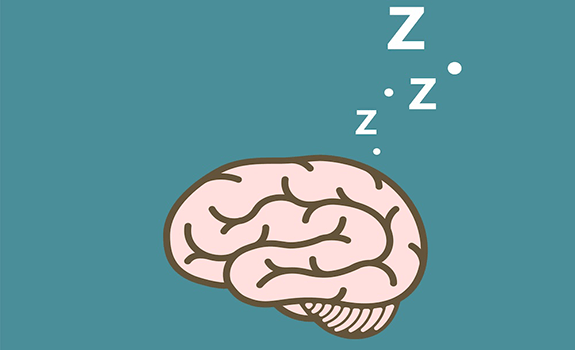News•November 19, 2024
Restless Nights: Sleep’s Role in Dementia

By Ram Rao, Ph.D., Principal Research Scientist for Apollo Health
Sleep is essential for the well-being of any individual, as the body utilizes this time to consolidate memories and repair any damage sustained during waking hours. Good sleep also helps maintain a healthy immune system and balances appetite. Poor-quality sleep (1) impairs the ability to form and retain new memories, (2) triggers obesity and other metabolic disturbances, (3) contributes to accidents, falls, and traffic mishaps, (4) leads to emotional disturbances, and (5) weakens immunity, making individuals more susceptible to degenerative diseases or infections.
In my earlier blog, “Sleep Quality and Moods,” I highlighted the importance of timely, high-quality, and uninterrupted sleep for moods and behavior. Good quality and sufficient hours of sleep have effects beyond moods and behavior; they can also lower the risk of dementia and even death. While it has long been recognized that people with dementia often experience poor and fragmented sleep, recent studies indicate that insufficient sleep can increase the risk of developing dementia.
In one study, researchers at Harvard Medical School analyzed data from over 2,800 individuals aged 65 and older who were part of the National Health and Aging Trends Study. Using the participants’ self-reported sleep patterns over one year, researchers tracked the development of dementia and/or death five years later. The findings revealed that subjects who reported sleeping fewer than five hours each night were twice as likely to develop dementia and twice as likely to die compared to those who slept six to eight hours. The study accounted for various demographic factors such as age, marital status, race, education, health conditions, and body weight.
In another study conducted by researchers across Europe, sleep data from nearly 8,000 participants were analyzed. Similar to the study above, researchers found that consistently sleeping for less than six hours at ages 50, 60, and 70 was linked to a 30% increase in dementia risk compared to a normal sleep duration of seven hours. This study also controlled for sociodemographic, behavioral, cardiometabolic, and mental health factors. Furthermore, many participants had their sleep duration objectively measured using wearable accelerometers, which tracked their sleep through body movements, thereby confirming the questionnaire data.
Understanding the link between midlife sleep duration and dementia in later life is crucial from both clinical and scientific perspectives. Previously, there was a “chicken-and-egg” dilemma in interpreting this link: did poor sleep cause dementia, or did early symptoms of dementia lead to poor sleep? By studying individuals from midlife, some as young as 50, it is now clear that poor sleep can significantly raise the risk of developing dementia 25 years or more down the line. Various factors contribute to poor sleep in middle age, including shift work, lifestyle stresses, caregiving responsibilities, anxiety, and pressing deadlines. Some, if not all, of these factors are within our control. For instance, if you’re only getting four to five hours of sleep because you’re working late every night, it may be wise to adjust your habits. Otherwise, you risk facing dementia by the time you retire.
While the exact mechanism linking poor sleep and dementia risk is unclear, one possible explanation relates to the toxic accumulation of proteins in the brain. During sleep, the brain cleans and clears out toxic waste. In contrast, poor sleep leads to inadequate removal of this “brain trash,” resulting in toxic build-up that disrupts memory centers, contributing to dementia. Sleep researchers also confirm that memory consolidation — the process of retaining essential memories and eliminating unnecessary information — occurs during good-quality sleep. A good night’s sleep ensures proper brain function, making the recommended amount of sleep each night crucial for memory consolidation.
At Apollo Health, quality sleep is the foundation of the KetoFLEX 12/3 Lifestyle. We recommend achieving seven to eight hours of quality sleep each night. Our Sleep guide, written for our members, provides detailed information about sleep strategies, sleep hygiene, sleep aids, and techniques to improve sleep.




